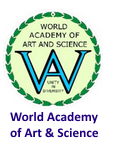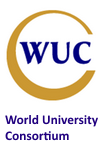Roundtable on the Future of Democracy: Challenges & Opportunities
 |
 |
 |
 |
Roundtable on the Future of Democracy: Challenges & Opportunities
Ethical Markets, St. Augustine, Florida
November 7 to November 9, 2018 (7th evening-9th)
The World Academy of Art & Science and World University Consortium are partnering with Ethical Markets Media and The Millennium Project to conduct this three-day roundtable on the Future of Democracy. This event will build on the insights, conclusions and recommendations generated at the Future of Democracy Roundtable at Dubrovnik in April 2018.
Is democracy in its current form really the most viable and effective system of governance? Are human beings sufficiently rational and selfless to govern themselves justly and effectively? Is the future of democracy at the national level compatible with the persistence of non-democratic institutions at the international level? By what process has the distribution of social power shifted from army, monarchy, aristocracy to democracy and how is that process likely to evolve further in future? To what extent are the institutional problems confronting democracy today reflections of underlying social, psychological and cultural factors and processes? What proven and potential safeguards and remedies are available to address the failures and insufficiencies of contemporary democracies? Is democracy the best possible system or merely a stage in the evolution of governance toward something more stable, an effective and equitable system? These are a few of the questions to be explored during this three-day meeting.
Following the end of the Cold War and the collapse of communist regimes in Eastern Europe and elsewhere, it appeared that democracy had finally established itself as the unquestioned victor in the governance contest, both in terms of acceptability and efficacy. Recent developments are challenging both these claims. The phenomenal developmental achievements of state capitalism coupled with authoritarian rule in China, the unashamed retreat from democracy in Turkey, the backlash against social democratic principles in Eastern Europe, the resurgence of populism, the rising power of corruption and legally-sanctioned oligarchy and plutocracy in the republics of the former Soviet Union, state capture in South Africa, the tension between national and regional interests and priorities in the European Union, and the dramatic deterioration of democratic practices in USA are posing heightened challenges to the acceptance, effectiveness and resilience of democracy.
This roundtable will explore the foundations of democratic governance, the challenges confronting democracies today, the impact of globalization and neoliberalism on democratic societies and politics, the continued struggle over the distribution of power and rights in modern societies, the challenges posed by technological advances and social media, the impact of resurgent nationalism and populism, proven remedies and alternative approaches available to enhance the institution’s effectiveness and reinforce underlying democratic principle, and evolutionary alternatives that might gradually supplant the forms of democracy prevalent today.
The meeting will consist of facilitated discussions centering on 10 major groups of issues plus an introductory session and a final discussion to frame conclusions, recommendations and next steps. The format will be highly interactive: short presentations combined with open discussion. Each session will be introduced by a moderator making brief opening remarks and posing fundamental questions to be explored during the session. The remainder of each session is reserved for moderated discussion among all participants. The program is open to participants from all disciplines and occupations. The conclusions of this session will be drawn upon to identify key issues for systematic examination in future programs of WAAS and WUC.
Session Topics (Tentative List)
The following is a tentative list of topics for discussion during the roundtable. The issues are broadly framed in order to permit a wide latitude for exploration. The list will be finalized based on feedback from participants regarding the critical issues they would like to explore.
- Foundations of Democracy: What are the principles and premises regarding human nature and social existence on which democratic institutions are expected to function effectively? How and to what extent are they realistic and realizable in practice? How have the foundational systems of law and governance changed over time as society evolved from feudalism, monarchy and aristocracy to democracy? What are the characteristics of these foundations today? Is there an essential relationship between peace and democracy? What is the relationship between liberal culture and democracy?
- Challenges Confronting Democracy: Recent events raise fundamental questions regarding the institutions of governance and also about the underlying social, psychological, cultural and evolutionary processes that determine how these institutions function. What are the sources and causes for the faltering of liberal democracies today? What is the reason for the reversion to authoritarian government by new democracies? What accounts for the rising tide of populism and the increasing polarization of democratic societies and political parties?
- Democracy and Social Power: How has the exercise and distribution of power in society evolved over time and what is its likely future direction? What role has democracy played in the legitimization and wider distribution of power in society? What is the role of social, psychological and cultural factors in determining the functioning of democratic institutions and the turmoil we are witnessing today? What is the role of economic and other forms of social power in the evolution of democracy and how can they be governed for the benefit of the whole society? What is the relationship between economic and political development and how essential is it to the promotion of human welfare and well-being?
- Neoliberalism & Democracy: What accounts for the fact that in so many countries democratic processes and mechanisms are readily subverted to serve the interests of powerful elites? What is the relationship between democracy and neoliberal economics? To what extent is the rise of neoliberalism associated with the collapse of communism and the end of the Cold War? How can these limitations be addressed?
- Globalization, Financialization, State Capitalism and Democracy: What has been the impact of the rapid globalization of financial markets and economies on the spread of democracy? What has been the impact of the growing financialization of economies on employment, inequality and social stability? What is the impact of state capitalism in China on the global economy, the competitiveness of market economies and competitive nationalism on the distribution of power and efficacy of democracy? What challenges do globalization and global governance pose to the future of democracy at the national level? What implications does democracy have for the future of governance at the global level?
- Technology, Media and Social Media: What has been the impact of digital technology, the mainstream media and social media on the development and practice of democracy? What role are these factors playing in governance today? What measures should be considered to maximize the beneficial and minimize their detrimental impacts?
- Democracy and the 4th Industrial Revolution: What is going to be the likely impact of the development of artificial intelligence, robotics and other 4th industrial revolution technologies on employment, inequality, human security and democracy?
- Human Rights, Rule of Law and Social Power: What factors contributed to the gradual rise of democracy as the political system of choice in the modern world? By what process did political and social power shift from military rulers, hereditary monarchs, aristocrats, dictators, autocrats, economic imperialism and colonial regimes to rule of law, human rights and democratically elected governments? What were the factors that have driven this evolution? What factors may drive the evolution of political systems in future?
- Known Remedies for Problems of Democracy: What policies and institutional mechanisms have been or can be introduced at the national level to safeguard democratic systems from various forms of abuse? How effective are these mechanisms in protecting human rights and promoting social cohesion? What mechanisms have been or can be introduced at the international level to foster or preserve democracy at the national level?
- Envisioning a Better System: What alternative models exist or can be conceived of to more effectively pursue the democratic ideals of freedom, security, prosperity, social equality and social harmony?